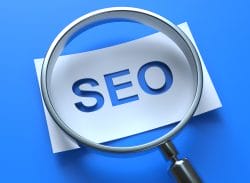Key SEO Roles of a Strong Home Page
This article was published on October 25, 2024
Categorized in: SEO
When it comes to B2B digital marketing, the website is at the center of everything. Specifically, it’s the home page that gets a lot of weight, or at least it should. Many put together their home pages without really thinking things through, and this could result in it not being as strong as it could. Not only is a strong home page important for the users, but it also benefits SEO. Here’s some information about this that illustrates this idea:
could. Not only is a strong home page important for the users, but it also benefits SEO. Here’s some information about this that illustrates this idea:
Understanding Your Audience is Key
The first thing to really think about when composing your home page is that your number one priority needs to be your audience. Sure, you may have other goals for it, such as the conversion elements and its function as part of your SEO program. However, the audience is at the center. After all, everything you do form a B2B marketing perspective, SEO included, should be about your audience.
After all, marketing is about connecting with them and building relationships with the, for the greater good of not only your overall marketing strategy, but for your business as a whole. Take a step back and really get to know your audience before you have your home page designed or revamped. It may feel frustrating that you are taking a task that “should” be simple and causing it to take longer, but this is something that will benefit it in the long run.
When putting together your home page, you just need to understand that your audience is the most important factor. When you know this, your SEO actually clicks in place.
Good Usability Helps SEO
Remember that SEO isn’t just about putting keywords in certain spots on the home page. In fact, the days of doing that and having it “work” for SEO are long gone. SEO is about more than just keywords, and this is reflected the search results. The truth is that search engines actually prioritize the user experience. This means that it looks for websites that are easy to navigate, load quickly, have a responsive theme, and are intuitive to navigate. It judges usability using a variety of metrics, such as how long it takes a page to load, the bounce rate of website visitors, how long people stay on your site, and more.
The search engines need to determine if people like your website. If there’s evidence of this, then they will reward you by returning your website more often in website results. Not only that, but if a website is well structured, this not only helps with navigation, but it also helps with visibility in the search engines.
Good usability begins with the home page. Most people will arrive at your home page first. If it isn’t serving people’s needs, they’ll leave faster. This will hurt your SEO.
A strong home page has several important roles, but your audience is at the center. If you please your audience, the rest will fall into place, and this includes your SEO. Take the time to understand your audience, and this will help the rest of the details.
LIKE AND SHARE THIS ARTICLE:
About the Author: Brick Marketing President, Nick Stamoulis
 Nick Stamoulis is President of Brick Marketing and has over 25 of years digital marketing experience. He specializes in solving complex digital marketing challenges through SEO, content marketing, social media, PPC, email marketing, SEO for AI (GEO) and conversion optimization.
Nick Stamoulis is President of Brick Marketing and has over 25 of years digital marketing experience. He specializes in solving complex digital marketing challenges through SEO, content marketing, social media, PPC, email marketing, SEO for AI (GEO) and conversion optimization.




